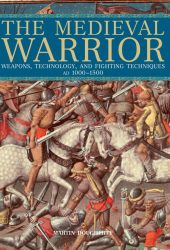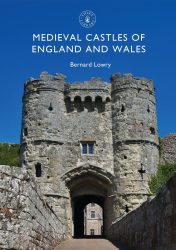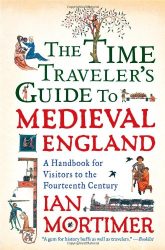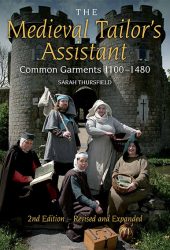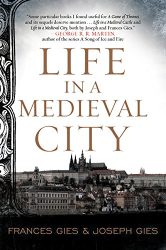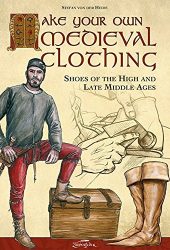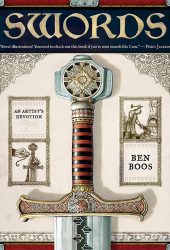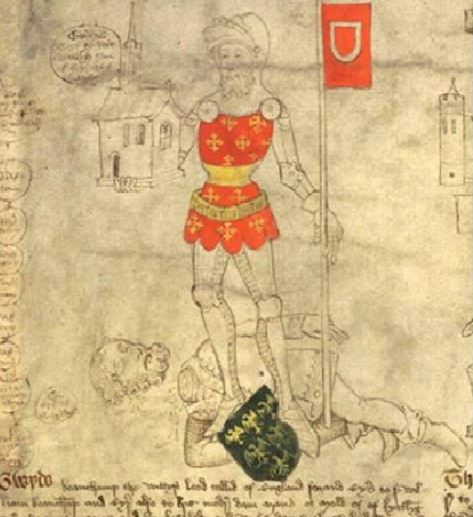
Piers Gaveston was a close companion and favourite of King Edward II of England, born around 1284 in Gascony, France. He entered the English court in the early 1300s and quickly captured the attention and affection of the young Edward, who became infatuated with him.
Who Was Piers Gaveston?
Gaveston’s rise to prominence at court was swift, much to the dismay of the English nobility, who resented his influence over the king. Edward showered Gaveston with titles, wealth, and honours, elevating him to positions of power far beyond his station. This fuelled resentment among the barons, who viewed Gaveston as an upstart and a threat to their own influence.
The relationship between Edward II and Gaveston was deeply controversial and scandalous for the time. Many contemporaries viewed Gaveston as a corrupting influence on the king, leading Edward to neglect his duties and responsibilities as monarch in favour of indulging Gaveston’s whims and desires.
Gaveston’s arrogant and haughty behaviour only served to exacerbate tensions at court. He flaunted his newfound wealth and status, openly mocking and antagonizing the nobility, who saw him as an interloper and an outsider. This further alienated Edward from his barons and contributed to the growing discontent and instability of his reign.
The barons’ hostility towards Gaveston reached a boiling point, culminating in his banishment from England in 1307. However, Edward’s exile of Gaveston was short-lived, as he soon recalled him to England and restored him to his former positions of power.
The barons’ patience wore thin, and in 1312, they captured Gaveston and executed him without trial, sparking a crisis that would ultimately lead to Edward’s downfall. Gaveston’s death served as a catalyst for the barons’ rebellion against Edward’s misrule, culminating in the establishment of a council of regency to govern in his stead.
Despite his ignominious end, Gaveston’s legacy endured in the annals of English history. He remains a symbol of the dangers of royal favouritism and the perils of unchecked royal power. His relationship with Edward II serves as a cautionary tale of the personal and political consequences of allowing personal attachments to cloud one’s judgment and leadership.
Books about Medieval Life
More Medieval People
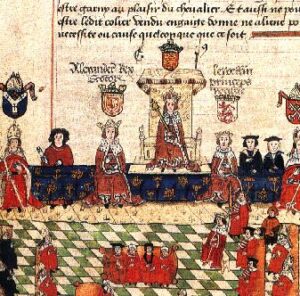
Medieval People: Andrew de Moray
Andrew de Moray a pivotal figure in the Wars of Scottish Independence and stands as a symbol of Scottish resistance against the English.
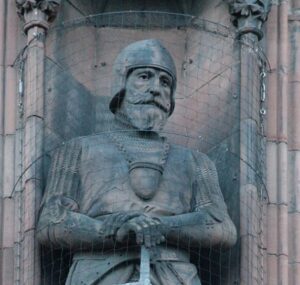
Medieval People: James Douglas, Lord of Douglas
James Douglas was a formidable figure renowned for his unwavering loyalty, military prowess, and unyielding commitment to Scotland’s cause.
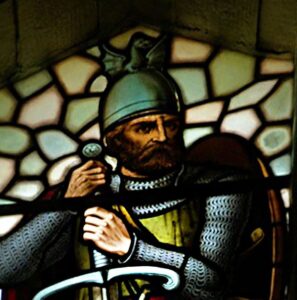
Medieval People: William Wallace
William Wallace commands reverence as a symbol of resistance against English oppression during the Wars of Scottish Independence.
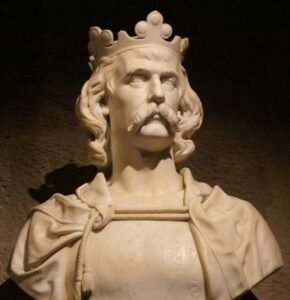
Medieval People: Robert the Bruce
Robert the Bruce was one of Scotland’s most renowned medieval kings and a prominent figure in the country’s history.
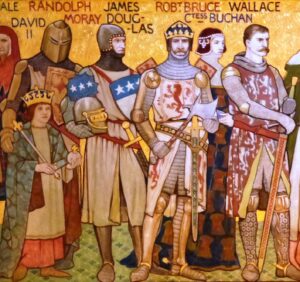
Scotland’s Most Famous Medieval Knights & Warriors
Scottish knights played a crucial role in shaping the medieval history of Scotland. Learn more about their bravery and fierce determination.
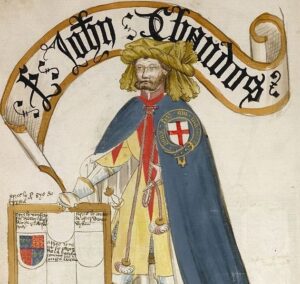
Medieval People: Sir John Chandos
Sir John Chandos was a notable medieval knight and military commander who played a significant role in the Hundred Years’ War.

